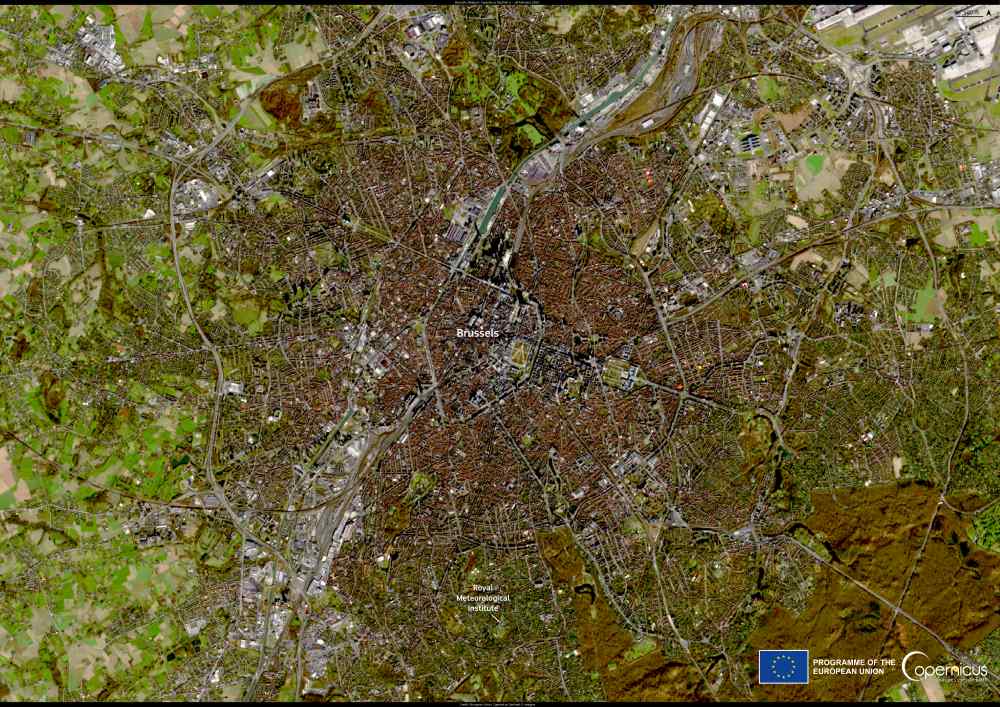On 17 February 2025, Belgium experienced its coldest night of the current meteorological winter, as recorded by the Royal Meteorological Institute (RMI). In Uccle, the temperature dropped to -4 °C, matching the low recorded on the night of 13 to 14 January. Meteorologists noted widespread frost and subzero temperatures across the country.
Brussels, characterized by a temperate oceanic climate (Köppen Cfb), experiences moderate temperatures throughout the year, with average lows of 1 °C in winter and highs of 23 °C in summer. Rainfall is frequent, averaging around 807 mm annually, with the wettest months being July and December. Snow is rare, but strong winter winds and steady precipitation define the colder months.

This Copernicus Sentinel-2 image, captured on 18 February 2025, shows Brussels and the meteorological station in Uccle, where the record-low temperature was observed.
Open data from the Copernicus Sentinel satellites aids in monitoring the impacts of cold weather, including frost effects on vegetation. These insights help communities improve land management and agricultural planning.
Featured image credit: European Union, Copernicus Sentinel-2 imagery



